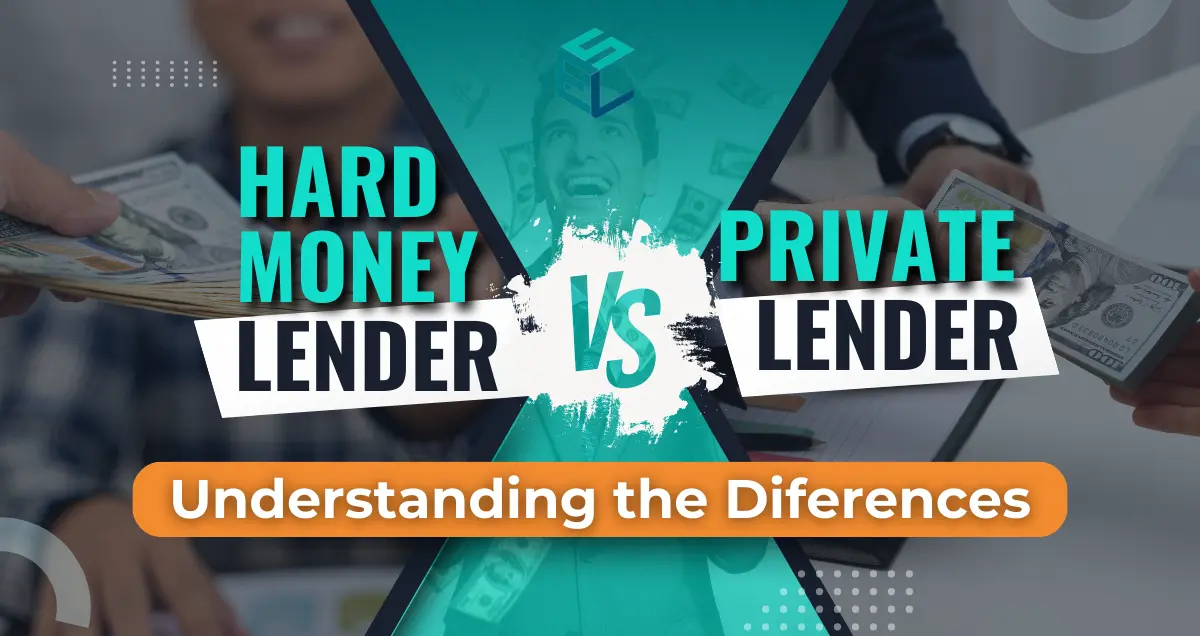In real estate investing, securing financing can be critical in achieving your investment goals. Two common sources of financing for real estate investors are hard money lenders and private lenders. While both types of lenders can provide the funding you need, there are key differences between them that can impact your borrowing experience and the overall cost of your loan. In this article, we’ll explore the differences between hard money lenders and private lenders and help you understand which option may be right for you.
What is a Hard Money Lender?
Hard money lenders are individuals or companies that provide short-term loans secured by real estate. These loans are typically used by real estate investors who need quick financing or who may not qualify for traditional bank loans. Hard money lenders often focus more on the value of the property being used as collateral than the borrower’s credit score or income.
What is a Private Lender?
Private lenders are individuals or companies that use their own money to provide loans. These loans can be utilized for various purposes, including real estate investments. Private lenders, such as Equity Lending Solution, typically offer more flexibility in terms of loan requirements and terms compared to traditional lenders.
Interest Rates and Fees
One of the main differences between hard money lenders and private lenders is the interest rates and fees they charge. Hard money lenders typically charge higher interest rates and fees compared to private lenders. This is because hard money loans are considered higher risk due to their short-term nature and the focus on the value of the property rather than the borrower’s creditworthiness.
Loan Terms
Hard money lenders usually offer shorter loan terms compared to private lenders. Hard money loans typically have terms ranging from six months to three years, while private loans can have terms of five years or more. Additionally, hard money lenders may require borrowers to make interest-only payments during the term of the loan, with the full principal amount due at the end of the term.
Loan Approval Process
The loan approval process for hard money lenders and private lenders can also differ. Hard money lenders often focus on the value of the property and the borrower’s equity in the property when making lending decisions. Private lenders may consider additional factors, such as the borrower’s credit history and income, in addition to the value of the property.
Collateral Requirements
Both hard money lenders and private lenders require borrowers to provide collateral to secure the loan. However, the type and value of the collateral required can vary. Hard money lenders typically require borrowers to provide real estate as collateral, while private lenders may accept other types of assets, such as vehicles or jewelry.
Credit Score Requirements
Credit score requirements can also differ between hard money lenders and private lenders. Hard money lenders may be more lenient when it comes to credit scores, as they are primarily concerned with the value of the collateral. Private lenders may require borrowers to have a higher credit score to qualify for a loan.
Flexibility
In terms of flexibility, private lenders often offer more flexibility compared to hard money lenders. Private lenders may be willing to negotiate loan terms and requirements based on the borrower’s individual needs, while hard money lenders typically have more rigid lending criteria.
Repayment Terms
Repayment terms can also vary between hard money lenders and private lenders. Hard money loans often require borrowers to make interest-only payments during the term of the loan, with the full principal amount due at the end of the term. Private loans may offer more flexible repayment options, such as amortizing payments over the term of the loan.
Risk Factors
Both hard money lenders and private lenders carry risks for borrowers. Hard money loans are considered higher risk due to their short-term nature and higher interest rates. Private loans also carry risks, as borrowers may be required to provide personal assets as collateral.
Regulatory Environment
The regulatory environment for hard money lenders and private lenders can also impact borrowers. Hard money lenders are subject to less regulation compared to traditional lenders, which can affect borrower protections and rights. Private lenders may operate under different regulations depending on the jurisdiction.
Choosing the Right Lender
When choosing between a hard money lender and a private lender, it’s important to consider your individual financial needs and goals. If you need quick financing or have a property with significant equity, a hard money lender may be the right choice. However, a private lender may be a better option if you’re looking for more flexibility in terms and requirements.
In conclusion, understanding the differences between hard money lenders and private lenders can help you make an informed decision when seeking financing for your real estate investments. While both types of lenders can provide the funding you need, it’s important to carefully consider the terms, fees, and risks associated with each option




